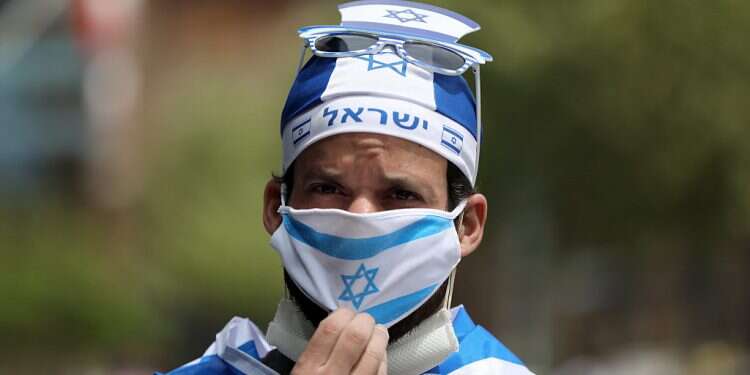The Health Ministry's Coronavirus National Information and Knowledge Center on Tuesday reported that 356 new cases of the virus were recorded on Monday out of 42,328 administered tests – a positivity rate of 0.9%.
Follow Israel Hayom on Facebook and Twitter
The coronavirus infection coefficient dropped to 0.53.
The ministry also said that for the first time since the induction of the so-called "traffic light" plan – which calculates which cities and towns have high infection rates – Israel no longer has any "red," or highly infectious, cities.
Israel has 8,268 active coronavirus cases – which is nearly half the number of cases compared to one week ago (14,953) – including 423 patients in serious condition, 226 in critical condition, and 206 on ventilators, a slight rise from Monday's 201. Some 75% of the seriously ill patients were not vaccinated.
The country has seen 6,188 deaths from coronavirus since the outbreak of the pandemic.
A total of 5,228,324 Israelis have received the first dose of the coronavirus vaccine, and 4,741,946 have received the second dose as well.
Despite the many encouraging statistics, the National Information and Knowledge Center said it was still too soon to declare the end of the pandemic, warned against complacency and called on the population to continued following safety guidelines even as more and more restrictions are lifted.
National corona commissioner Prof. Nahman Ash on Monday told 103 FM Radio that in his estimation, in several weeks, the public will be allowed to stop wearing protective masks outside. "We will discuss this after the Passover holiday. I feel the time has come to relieve these restrictions as well," he said.
Meanwhile, the Knesset Foreign Affairs and Defense Committee on Monday rejected a government decision to extend the Shin Bet security agency's surveillance program for coronavirus detection.
Subscribe to Israel Hayom's daily newsletter and never miss our top stories!
The cabinet sought to extend the contentious program for two weeks, with the panel split against the move 4-3.
The highly controversial program allows the Shin Bet to use cell phone tracking data and other means to perform contact tracing on infected individuals.
Committee chairman MK Zvi Hauser described the program's contribution to tackling the pandemic as "negligible" at this point, as it is only used for less than 15% of the infections.
Portions of this article were first published by i24NEWS.




